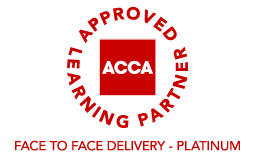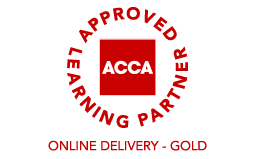If you envision yourself as an investment advisor, researcher, consultant, strategist, or portfolio manager, become a Chartered Financial Analyst (CFA). The CFA professional designation, awarded by the CFA Institute, is the gold standard in investment analysis and wealth management credentials.
How do you become a CFA charterholder? You must:
- Pass all three CFA Exams and at least one accompanying practical skills module (PSM) at every level.
- Complete the required relevant work experience.
- Become a CFA Institute regular member.
Passing the three CFA exams is the biggest hurdle to becoming a CFA charterholder, but we have CFA exam tips to help you. Below are the CFA preparation steps our Phoenix Financial Training lecturers recommend to our students.
1. Understand the CFA exams.
You may be aware that there are three exam levels (Level I, Level II, and Level III), but do you know what each level exam covers and how each exam is administered? This understanding is crucial because each exam comes with a different set of CFA study materials. The differences in structure and topics also mean each one calls for a specialized CFA exam study plan.
Here’s a straightforward breakdown of each level exam.
1. Level I
The Level I exam will test your conceptual knowledge. It is split into two approximately 135-minute (2.25-hour) sessions. It has 180 multiple-choice items, each of which can be a question, statement or table with three options (A, B, C). The items follow two basic formats: a sentence completion item with three choices and a question with three possible answers.
The Level I curriculum covers 10 topics, which have specific weights:
| Topic | Exam weight |
| Ethical and Professional Standards | 15-20% |
| Quantitative Methods | 6-9% |
| Economics | 6-9% |
| Financial Statement Analysis | 11-14% |
| Corporate Issuers | 6-9% |
| Equity Investments | 11-14% |
| Fixed Income | 11-14% |
| Derivatives | 5–8% |
| Alternative Investments | 7-10% |
| Portfolio Management | 8-12% |
Level II
The Level II exam will challenge your analysis and evaluation skills. The exam is split into two sessions of approximately 132 minutes (2.2 hours) each. Each session has 11 vignettes, so there’s a total of 22 vignettes (20 of the 22 are scored), which form the basis for the exam’s 88 multiple-choice questions.
The level 2 exam covers the following 10 topics:
| Topic | Exam weight |
| Quantitative Methods | 5–10% |
| Economics | 5–10% |
| Financial Statement Analysis | 10–15% |
| Corporate Issuers | 5–10% |
| Equity Investments | 10–15% |
| Fixed Income | 10–15% |
| Derivatives | 5–10% |
| Alternative Investments | 5–10% |
| Portfolio Management | 10–15% |
| Ethical and Professional Standards | 10–15% |
Level III
The Level III exam will test your high-level integration and application capabilities. Like the Level II exam, it is composed of two 132-minute sessions and covers 11 item sets (vignettes with multiple-choice questions) and 11 essay sets (vignettes with constructed response questions).
You will be asked to select your preferred pathway upon your Level III registration.
- Portfolio management: The traditional content of the Level III module concerns advanced portfolio management with a focus on public markets.
- Private wealth: It’s for you if you want to serve the unique investment needs of high-net-worth clients.
- Private markets: Choose this if you want to focus on private markets investing, generally from the perspective of a general partner.
Your CFA study materials will vary depending on your pathway, and the exam topic weight will also change accordingly. Specifically, all three Level III exam pathways will share a 65-70% common core, but 30-35% of the topics will be pathway-specific.
| Topic | Exam weight |
| Asset Allocation | 15–20% |
| Portfolio Construction | 15–20% |
| Performance Measurement | 5–10% |
| Derivatives and Risk Management | 10–15% |
| Ethical and Professional Standards | 10–15% |
| Pathways (Portfolio Management or Private Markets or Private Wealth) | 30–35% |
2. Understand the CFA schedule.
Learning how to create an effective CFA study plan requires that you familiarize yourself with the CFA schedule. Your exam schedule will determine how much time you have to study and let you discern the best CFA prep strategies. Note that CFA preparation takes at least 300 hours per level.
Here’s what you need to know about the CFA exam schedule. The CFA Institute provides four exam windows. Exam availability is variable.
- February: Level I, Level III
- May: Level I, Level II
- August: Level I, Level II, Level III
- November: Level I, Level II
Mind these important exam window dates:
- The registration window opening date
- The invoice payment deadline
- The registration window closing date
- The scheduling deadline
- The rescheduling deadline
- The exam date
3. Enroll in a CFA Course.
As earlier mentioned, every level will cover specific topics, and you must study those topics. The goal is to learn deeply and intensely so you pass the evaluation, i.e., the relevant level exam.
While studying by yourself is an option, enrolling in a CFA course is better. This will provide you with a system, structure, and a firm CFA exam study plan to follow. It can help pace you and, because it enforces accountability, it can be significantly more effective.
At Phoenix Financial Training, if you enroll in a face-to-face program, attend classes religiously, and fulfill your mock exam requirements, you will get a lifetime pass guarantee. This means that if you fail the level exam you’re preparing for, you can resit and retake the course for free until you pass. You will never have to pay again for the same course.
4. Maximize available review materials.
You have several sources of review materials you can use to review for your CFA exam. For instance, upon registration for a CFA exam, you can gain access to the study tools in the CFA Institute’s learning ecosystem (LES). These include the digital version of the exam curriculum, CFA exam study plans, practice questions, mock exams, flashcards, games, and available practical skills modules.
Here at Phoenix Financial Training, we provide the following materials to our students:
- Online or face-to-face review classes
- A hard copy of the study notes our tutors created especially for our students
- Practice questions
- Mock exams
- WhatsApp tutor support
Our review classes and study notes will provide you with a ready-to-use CFA study guide. You’ll know exactly what you need to study for adequate exam preparation. During classes and through personalized chat support, our tutors will also share with you essential CFA exam study tips and provide guidance on how to create an effective CFA study plan. All these will give you an edge during your CFA exams.
Essential CFA Preparation Tips
Follow these tips:
- Enroll in a CFA course early. Check out the Phoenix Financial Training timetable so you can plan accordingly.
- Devote a few hours of your time every day to studying for the CFA exam according to your exam-specific CFA study guide.
- Answer practice questions every day.
- Adjust your CFA study plan to focus on your weaknesses, as revealed by your practice tests and mock exams.
- Talk to your exam prep tutors. Pick their brains if you find certain topics and practice questions difficult.
- Make sure you have a valid international travel passport, as it’s the only ID credential accepted for testing. It must not expire before your exam date, and your name on it must match your CFA Institute account.
- Log in to the CFA Institute exam demo portal to familiarize yourself with the exam software features.
- Rehearse your travel route to the exam testing center. Plan your exam-day logistics so you don’t lose your way or miss your testing date and time.
Get Ready for Your CFA Exam
Phoenix Financial Training provides face-to-face and online financial training in the United Arab Emirates, Oman, and India. We also offer CFA exam preparation.
Contact us to learn about our CFA program inclusion, the CFA course fee, and our training schedule.




